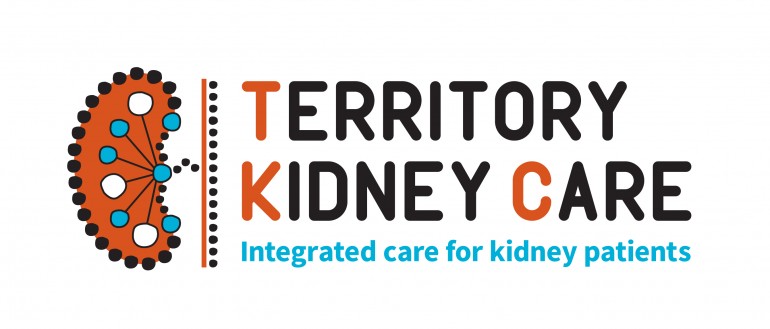Background:
Territory Kidney Care (TKC) is an integrated clinical decision support system that links primary health data from government and non-government services with hospital data for people with chronic disease that put them at risk of developing kidney disease. TKC has been developed in partnership with the Northern Territory Health and the Aboriginal Community Controlled Health Services (ACCHS) sector. TKC undertook an iterative and incremental design process in collaboration with stakeholder health services and clinicians to ensure the system was built 'fit for purpose'.
In the NT, where the population is highly mobile and often access multiple primary and hospital-based services, there are significant challenges to the provision of optimal integrated care. Due to unconnected and siloed health care systems, patients frequently have multiple electronic and paper health records across government and non-government services. This increases the complexity and disjointed nature of care, making it difficult for treating clinicians to obtain a complete and accurate picture of a patient's health journey.
Aim:
In 2020 TKC won the NT Digital Excellence Award, Community Benefit Category.
Summary:
Chronic Kidney Disease (CKD) is a common and serious health problem in Australia. CKD refers to all kidney conditions where a person has kidney damage and/or reduced kidney function. People with CKD suffer poor health outcomes, reduced life expectancy and reduced quality of life. The burden of CKD is particularly heavy amongst Indigenous Australians and in the NT the rates of kidney disease are the highest in Australia. More than 2 in 5 Aboriginal adults in remote NT communities show evidence of having CKD. Many people do not know they have CKD as up to 90% of kidney function can be lost before symptoms are evident. Additionally, chronic conditions such as diabetes, hypertension and heart disease, although occurring more frequently in Aboriginal people, may not be fully recognised as risk factors for CKD. CKD is an under-diagnosed condition.
Demand for dialysis treatment and the associated expenditure has increased relentlessly over recent decades in the NT and has surpassed all projections. Measures to address the high rates of chronic kidney disease and provide earlier intervention to delay or avoid the need for dialysis are urgently needed.
Territory Kidney Care is an integrated clinical information system that provides a means to facilitate earlier and targeted patient care without increasing the resource burden on staff.
Implications for policy and practice:
In the NT, where the Aboriginal population is highly mobile and often access multiple community and hospital-based services, there are significant challenges to the provision of optimal integrated care. Patients with a high risk of developing chronic kidney disease (CKD) are slipping through “the cracks” in our health system.
The effective integration of disparate health care systems is crucial in the “new normal” post-COVID19 era. The NT experienced very different challenges in the delivery of health care during the pandemic, compared to other jurisdictions. Remote communities were declared biosecurity zones and travel by clinical staff and patients to and from the communities was severely restricted. Virtual health care became a necessity. However effective virtual health care relies on access to complete patient information and clinicians are often required to work with diverse interfaces to obtain the data they need; often this information is incomplete.
TKC, adds an immense contribution to virtual healthcare, telehealth and integrated care and will be core to our ability to sustain effective care for people with complex chronic conditions as we transition to post-COVID models of care. TKC has the potential to transform care delivery and provide consumer-centric, affordable, accessible and high-quality health care.
Our research has found:
Our work with tertiary and primary health services has found that a substantial proportion of people at risk of CKD are not regularly screened and that a number of people with advanced CKD do not have a correct diagnosis and are therefore not receiving evidence-based care.
However there is strong evidence which suggests that patients who have intense monitoring, follow-up and treatment according to evidence-based protocols have better health outcomes, reduced health service utilisation and make timely and more informed choices about treatment options. Additionally, there is extensive evidence on strategies to facilitate the earlier identification of people with CKD which include monitoring, surveillance and the regular screening of people with hypertension, cardiovascular disease and diabetes. Importantly, the provision of care to people by people that know them and their family the best - the community health service- is key to increasing and maintaining patient engagement and this requires support for GP in the management of people with complex conditions.
Chief Investigator:
Associate Professor Gillian Gorham
Project contact:
Paul Kamler - TKC - Informatics Clinical Nurse Consultant
Associate Professor Asanga Abeyaratne - TKC -Clinical Lead Father Frank Flynn Fellow
Project start date:
2016

